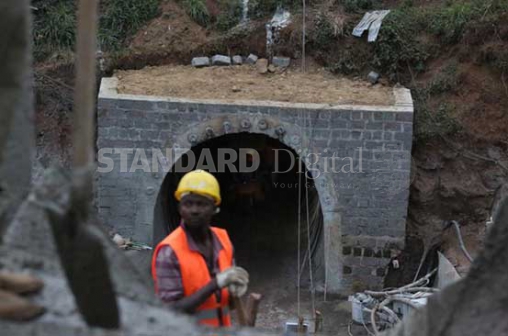×
The Standard e-Paper
Smart Minds Choose Us

It is emerging that a technical committee report flagged serious concerns about the Northern Water Collector Tunnel long before the controversy around the project exploded.
A lobby group that first took the dispute to the National Environment Tribunal (Net) is now accusing the National Environment Management Authority (Nema) and local leaders of turning a blind eye to the initial concerns about the project.